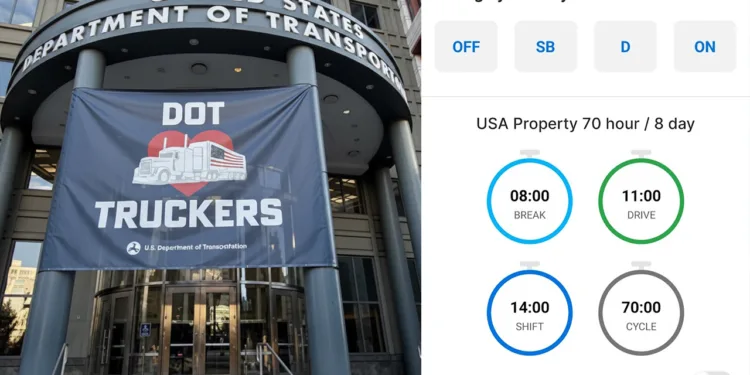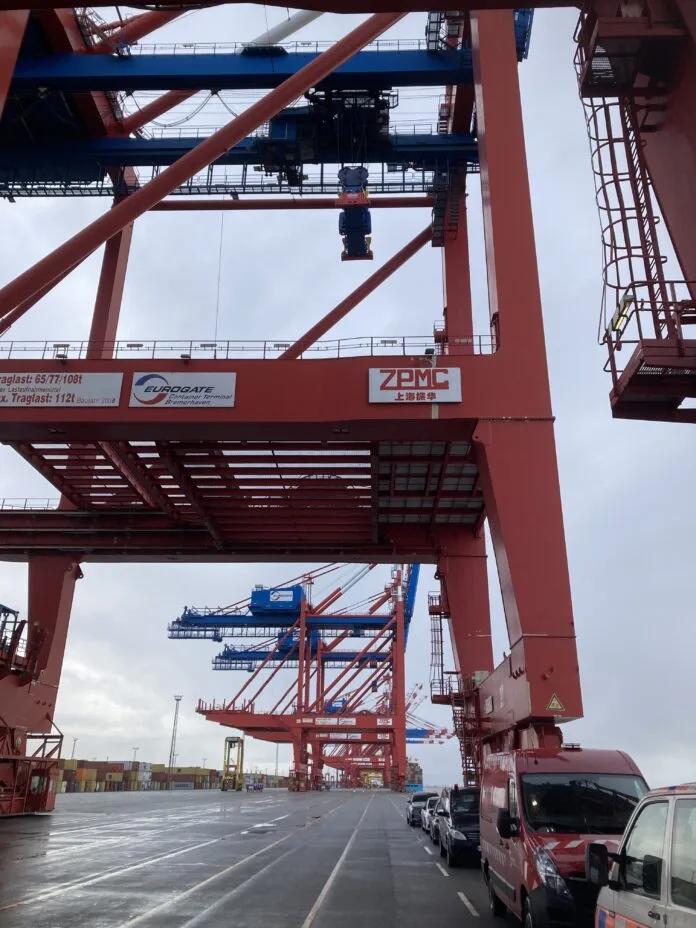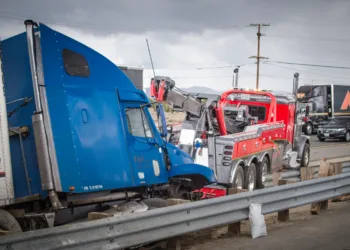Transportation Secretary Sean Duffy announced two pilot programs Monday aimed at giving truck drivers more flexibility in hours-of-service regulations, marking the latest effort in the Trump administration’s pro-trucker agenda as questions persist about the effectiveness of existing electronic logging device mandates.
The Federal Motor Carrier Safety Administration will test split-duty period options and flexible sleeper berth configurations through the new programs, which could affect how drivers manage their 14-hour driving windows and required rest periods. Protocol development begins in early 2026, with more than 500 commercial drivers expected to participate.
The Split Duty Period pilot program will allow participating drivers to pause their 14-hour “driving window” for no less than 30 minutes and no more than three hours, while the Flexible Sleeper Berth pilot program will explore additional sleeper berth split options beyond the current “8/2” and “7/3” configurations.
FMCSA will test the safety implications of allowing drivers to divide their 10-hour off-duty requirement into “6/4” and “5/5” split periods. The research will examine how these alternatives affect driver fatigue and overall safety performance.
“Truck drivers are the backbone of our economy, and we owe it to them to explore smarter, data-driven policies that make their jobs safer and more enjoyable,” said Duffy. “These pilot programs will help identify real solutions for America’s drivers without compromising safety.”
The programs represent part of the Department’s Pro-Trucker Package, unveiled in June following President Trump’s Executive Order on Enforcing Commonsense Rules of the Road for America’s Truck Drivers. The broader package includes more than $275 million in grant funding to expand truck parking nationwide, including $180 million for Florida to add 917 new truck parking spaces along the I-4 corridor.
As a CDL holder for more than 25 years who has worked both as a driver and in fleet operations, as well as owned fleets and dispatched under my authority and broker authority, I’ve seen firsthand why we have the regulations we do today. The hours-of-service rules didn’t emerge in a vacuum, they exist because of widespread violations that occurred when oversight was minimal. Electronic logging devices didn’t exist, and when money and survival are the objectives.
Having been a trucker who bent the rules earlier in my career, I understand the pressures drivers face. When you present the opportunity to work beyond legal limits to make more money, many will take it, particularly when financial survival and the survival of your small business or your family’s livelihood are at stake. For drivers and fleets struggling economically, the temptation to push past safety limits can be overwhelming.
This mindset often ignores the litigation and crash exposure potential that many believe will “never happen to them.” The reality is that fatigue-related incidents carry enormous consequences, both in human terms and financial liability.
FMCSA data show that hours-of-service violations have decreased since the ELD rollout, with compliance improving across the industry. However, research suggests the safety picture is more complex.
A University of Arkansas study found that the federal ELD mandate has not reduced accidents and may correlate with an increase in unsafe driving incidents. The research showed that “unsafe driving behaviors among the adopting carriers increased by about a third,” including infractions such as improper lane changes, following too closely, and speeding.
A separate study by Northeastern University’s Alex Scott found no measurable impact on accident numbers from widespread ELD adoption, particularly among small carriers where ELD adoption saw the most significant increase. The research suggests that while the ELD mandate achieved improved HOS compliance, with violations decreasing by 36.7% initially and a further 51.7% under stricter enforcement, this didn’t translate to fewer crashes.
One significant factor limiting ELD effectiveness is the substantial portion of the trucking industry that remains exempt from the mandate. Agricultural haulers, short-haul operators, driveaway operations, and vehicles with pre-2000 engines all operate outside ELD requirements. When regulations apply to only part of an industry, the overall safety impact becomes diluted.
Beyond exemptions, the U.S. ELD system faces additional challenges from fraud and inadequate oversight. Unlike European Union systems that require drivers to input individual cards tied to their personal records and utilize a limited number of certified tachograph manufacturers with third-party certification, the U.S. relies heavily on self-certification by ELD providers.
This approach has created vulnerabilities. Businesses that sell the ability to edit ELD records have emerged, undermining the system’s integrity. Not all ELD vendors meet the legitimate standards they should, and many fail to comply with the technical specifications outlined in the voluminous 49 CFR 395 Appendix A.
FMCSA regularly removes ELD providers from its registry for failing to meet these standards, but the self-certification system allows non-compliant devices to enter the market initially. The agency’s reactive approach to policing ELD compliance contrasts sharply with the EU’s proactive third-party certification model.
FMCSA plans to propose revisions to the existing ELD rule, targeting a notice of proposed rulemaking in the near future. Potential changes include reevaluating exemptions for pre-2000 engines, improving protocols for device failures, and streamlining procedures to remove non-compliant devices.
The agency has also been active in removing non-compliant devices from its approved list. On September 4, FMCSA removed TT ELD PT30, ELOG42, and RENAISSANCE ELD from the registered devices list due to companies’ failure to meet minimum requirements. Motor carriers using these devices must replace them with registered ELDs by November 3.
Meanwhile, Duffy has emphasized enforcement of English proficiency requirements for CDL holders, with more than 1,500 drivers seeing licenses revoked since the rules were reinstated.
The pilot programs offer a balanced approach to addressing driver quality-of-life concerns while maintaining safety oversight. The mixed results from ELD implementation serve as a reminder that even well-intentioned regulatory changes can produce unintended consequences.
At the root of many compliance issues lies a fundamental problem, drivers and fleets will often work themselves to death chasing the next dollar if allowed to do so. This stems from neglecting or not fully understanding our moral and ethical responsibilities around safety and sharing the road with the public.
The financial pressures in trucking are real, but they cannot override the basic obligation to operate safely. When economic survival drives decision-making without regard for safety consequences, the results can be catastrophic – not just for drivers and carriers, but for every motorist sharing the highway.
As someone who has experienced both sides of the compliance equation, while at the same time handling expert witness cases in litigation and handling hundreds of commercial crash claims, these pilot programs represent a positive step toward finding regulations that work for both safety and operational efficiency. The key will be ensuring that any flexibility granted doesn’t simply create new opportunities for the same unsafe practices that necessitated stricter rules in the first place.
The trucking industry needs regulations that acknowledge economic realities while prioritizing public safety. These pilot programs could help strike that balance, if they’re designed and implemented with appropriate safeguards based on real-world driving experience and a commitment to ethical operation that goes beyond mere regulatory compliance.
The post Transportation Secretary Launches HOS Flexibility Pilot Programs appeared first on FreightWaves.



















